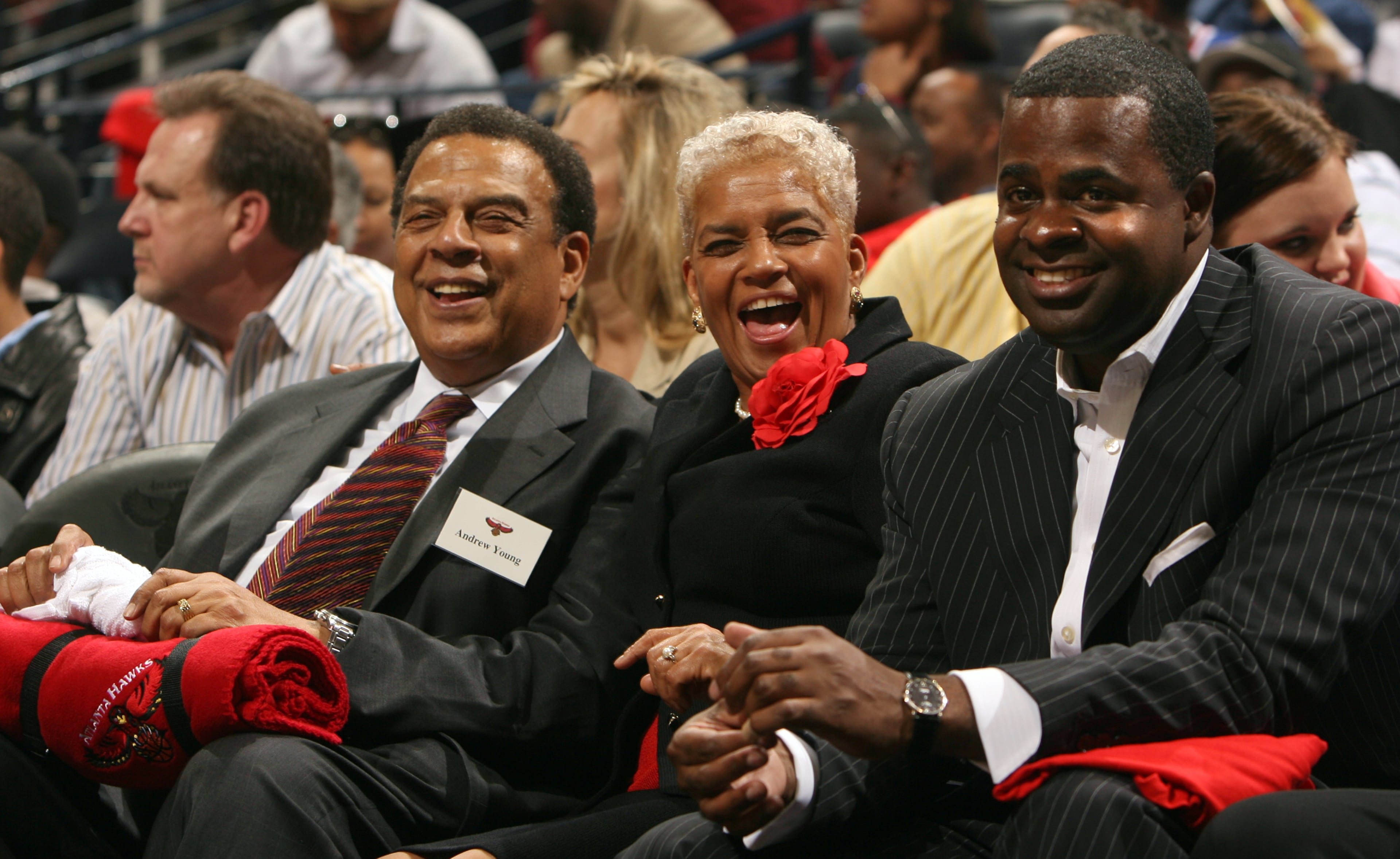OPINION: Hey, feds! Put up or shut up on Kasim Reed before election

The Atlanta Journal-Constitution last week broke a story that said the feds are apparently still digging into former Atlanta Mayor Kasim Reed’s reign in office for possible wire fraud violations, a felony.
It’s been a long dig — more than three years looking into Reed — and an expensive one. The city attorney recently told Atlanta City Council members that investigation-related litigation (not just into Reed) has cost Atlanta $31 million since 2016. And that doesn’t even consider what federal authorities have spent, because you know FBI agents had to buy poster boards and Post-it notes in bulk to keep track of all that was going down at City Hall.
But here we are. It has been almost a full mayoral term since Reed left office at 2018′s dawn after serving for eight years — gone long enough to realize how much he misses having someone else drive him around. So he’s running again. And naturally, he’s running hard. There is indeed a campaign for mayor with other candidates, although much of the light in that political universe is sucked up into the black hole that is Kasim Reed.
Part of that is because Candidate Kasim remains under a cloud.
The AJC last week wrote that Reed appears to be under federal investigation for allegedly using campaign funds for personal purchases, spending on jewelry, travel, lingerie and furniture. The feds were using the courts to squeeze his campaign’s former attorney, Jeremy Berry — who later became city attorney — to admit that some of the expenditures on the former mayor’s campaign disclosures seemed to be personal.
Getting a lawyer to flip and disavow the attorney-client privilege is hardball stuff. But that is where the feds are these days in the endless investigation that has netted several minions but no chief. In 2018, the former U.S. attorney said, “The ethics and culture of an organization start from the top.” (I always preferred “a fish rots from the head.”) However, we have not seen them land a glove on Reed.
In April 2018, I wrote a column headlined, “Feds target Kasim Reed, but is that all there is?”
I wrote: “After more than two years of sleuthing, federal investigators are looking at Hizzoner. In a subpoena, prosecutors are seeking Reed’s P-card (city credit card) receipts, as well as info about the convoluted manner in which he engineered to have a government-connected charity pay off part of the tab for an expensive overseas trip.”

I noted that the feds, who are supposedly deft at delving into such matters, were following up on stories first reported by The Atlanta Journal-Constitution and Channel 2 Action News. Picking up a newspaper or flipping on the TV doesn’t seem like a reassuring law enforcement investigative technique.
When I saw last week that the feds were rummaging around campaign disclosures, it seemed they had run through the usual course of investigation that occurs when prosecutors burrow into the life of a politician: bribery, illegally shepherding contracts, kickbacks, purposeful misspending of tax money. That kind of thing.
And when they go through all that and can’t find anything better, then they’re left looking into campaign spending. It’s a world where many politicians have a hard time resisting their urges to misbehave. There’s almost always ego involved in the political game, and that is sometimes accompanied by a feeling that you’re owed a li’l somethin’ extra for all your effort.
The 11th U.S. Circuit Court of Appeals, while pondering whether the feds could force the Reed campaign’s attorney to sing before a grand jury, posited: “By asking for money for an election bid, a candidate is representing to potential donors that the money will be used for that campaign. And by soliciting monies for this political endeavor, but then utilizing those funds for a personal endeavor, the candidate engages in a scheme to defraud.”
According to the judges’ ruling, the Reed campaign’s legal team “argues that there could not have been a scheme to defraud because the only thing donors could expect upon making a campaign contribution was that the contribution be ‘placed in a campaign fund, which is exactly what happened here.’“
It was a novel (and head-scratching) legal theory, to be sure. Of course, it didn’t work.
The judges noted three other examples in which politicians used campaign finances for personal use, and in each case, “the district court found that the government had adequately alleged a scheme to defraud.”
In one other case, a federal appeals court in New York overturned a sentence of a politician named Joseph Pisani, who was convicted of spending campaign money on his own self. It turns out the law making that illegal was passed after he had spent the cash. The court in New York also noted in its decision “that the overwhelming majority of the witnesses who testified for the government ‘did not care whether Pisani used them for political or personal purposes.’”
To counter such an argument here, prosecutors brought in Reed contributors to testify they “made their contributions with the belief that they would not be used for personal expenses, and Georgia law further forbids the use of campaign funds for personal purposes.”

In the pantheon of illegalities and misdeeds, spending campaign money on noncampaign-related activities is a big step down from bribery. Are the feds scraping the barrel for something, anything, to hang on Reed? Or are they simply using it as the cherry atop an indictment, complete with other misdeeds. The feds don’t talk and Reed has made no public comment about the latest wrinkle.
But one would believe that if there were a strong case in the offing, or if any of the officials who have been indicted had something on him, we’d have had a blockbuster of a corruption case here with Reed in the starring role.
Reed has long denied any wrongdoing, and a few weeks ago he told me, “After three years, the Trump administration Justice Department did not take any action against me.”
He did not respond to the AJC’s latest story, although after it was published, his spokeswoman, Anne Torres, fired off a note saying, “The AJC continues to repeatedly report false, inaccurate, incomplete and speculative information about Mayor Reed.”
It made me reminiscent of the old days, like this 2016 press release from Torres (it lives on the Interweb) saying I peddle “innuendoes, empty threats and false accusations.”
It has often been noted the feds waited a long time to indict former Mayor Bill Campbell on corruption charges. He left office at the end of 2001, and in May 2003, AJC editorial page editor Cynthia Tucker — who called him a “scoundrel” and “one of the worst mayors in modern Atlanta history” — wrote a column headlined, “It’s time to end hunt of Campbell.” Her point was the long-running investigation cast a shadow over the city.
Fifteen months later, in August 2004, Campbell was indicted and was later convicted. His indictment came 32 months out of office.
We are now 42 months removed from the Reed years, although one could argue the pandemic slowed down the process. However, he is now running again. The election for the next mayor will heat up soon and federal prosecutors owe the citizens of Atlanta one thing: Is their former mayor (and possibly future leader) a crook? Or is he not?
It’s time to put up or shut up.


